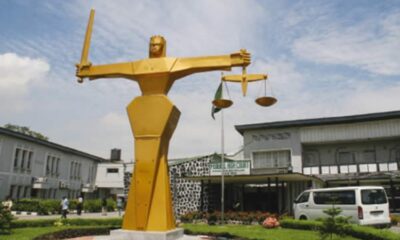Business
150 million Nigerians now enjoying good electricity supply – Minister

Minister of Power, Adedayo Adelabu, has revealed that around 150 million Nigerians currently enjoy adequate access to electricity, although roughly 80 million still face energy deficits.
Speaking Thursday at the 2025 Ministerial Sectoral Update Conference in Abuja, Adelabu highlighted this milestone while participating alongside Minister of Information and National Orientation, Mohammed Malagi, and other top officials.
According to him, this progress is largely attributed to Nigeria’s role in the “Mission 300” initiative—an ambitious programme jointly spearheaded by the World Bank and the African Development Bank (AfDB) aimed at connecting 300 million Africans to electricity by 2030.
“The compact sets ambitious goals to enhance electricity access, increase renewable energy adoption, and improve clean cooking solutions for millions of Nigerians — that is Mission 300, and we are making good progress on this,” he said.
Adelabu added that Nigeria is expected to contribute significantly to the programme’s targets.
“I’m happy to tell you that out of the 300 million Africans that the World Bank and AfDB aim to reach, Nigeria is on course to account for no less than 25 per cent, which translates to about 75 million Nigerians. When we presented our compact, they agreed with us.”
With a national population exceeding 240 million, Adelabu noted that although electricity has reached most citizens, reliability remains a key issue.
“As it is today, Nigeria—a country with about 240 million people—has access for 150 million people already, while about 80 million lack access to adequate electricity in Nigeria.
“The real challenge lies in the stability and affordability of electricity. That’s how we measure reliability. We must ensure that those who have access enjoy consistent and affordable power,” he said.
He urged international partners to strike a balance between expanding renewable energy in rural regions and reinforcing the central grid to better serve cities and industries.
“When you’re extending access to the 300 million people under this initiative, let’s not concentrate solely on renewable energy—which is more appropriate for rural communities.
“Strengthening grid infrastructure is equally crucial so that those connected to the grid can enjoy reliable power. Otherwise, how do we explain the growing number of Nigerian companies opting out of the national grid to generate captive power?”
The minister also touched on recent gains in generation capacity.
“We have increased our generation to 6,003 megawatts, up by 1,700 megawatts in one and a half years since President Tinubu assumed office. It took Nigeria over 40 years to achieve an incremental 2,000 megawatts of average energy; we achieved this in less than two years. Past administrations have their positives, but if they had been adding at least 1,000 megawatts of power since 1999, we would be talking about 26,000 megawatts and more in Nigeria.
“Now that we (the current administration) have created the trajectory, if we can sustain it, I can assure you that before the end of this administration’s first term in 2027, we should be able to generate and distribute nothing less than 8,000 megawatts of power.”
He further disclosed that the Kaduna Power Plant would be operational before the close of 2025, and also promised significant progress on bridging the metering gap.
“The metering gap will soon be a thing of history.”
Adelabu also addressed tariff reforms, stating that the changes have improved the sector’s revenue base by ₦700 billion.
The Nigerian Electricity Regulatory Commission (NERC) had in April 2024 approved a tariff hike for Band A customers—from ₦68 to ₦225 per kilowatt-hour—impacting approximately 1.9 million users. The adjustment, aimed at easing subsidy burdens, triggered mixed reactions.




















